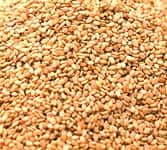Life Extension Magazine®
Proposed EU Law Threatens US Health Freedoms | ||
On January 25, 2005, Paul Lasok, QC, one of the world’s leading experts on European Union (EU) law, presented the case for preserving consumers’ freedom of access to dietary supplements in the European Court of Justice in Luxembourg. Lasok argued on behalf of the UK-based Alliance for Natural Health. At issue is the draconian EU Food Supplement Directive’s so-called “positive list” of ingredients allowed in the manufacture of dietary supplements. Unless the court issues a favorable verdict in June, the ban posed by the positive list would eliminate 75% of the forms of vitamins and minerals currently used in the EU market. This ban should be of grave concern to Americans. The United Nations’ Codex Alimentarius Commission, assisted by the US FDA, views the EU Food Supplement Directive as a template for developing a global trade standard for dietary supplements. The FDA is preparing the US for “harmonization” of its dietary supplement laws to an absurdly restrictive international standard—aided and abetted by drug company-dominated vitamin trade associations worldwide. The offices of US Sens. Orrin Hatch (R-UT) and Tom Harkin (D-IA), the US Trade Representative’s Office, and especially the US Codex Office (led by Dr. Ed Scarbrough at the USDA) have been misleading the public on the Codex issue for years. In 1996, the Life Extension Foundation was the first to call global attention to this looming threat to health freedom. International Advocates for Health Freedom (IAHF) was created to raise awareness of the issue, and more information on our recent emergency meeting is available at www.glycommunity.com/iahf. —John C. Hammell, President, IAHF To defend your access to dietary supplements, access updates via the websites of IAHF (www.iahf.com), Life Extension (www.lifeextension.com), and the Alliance for Natural Health (www.alliance-natural-health.org). You can make an emergency donation to IAHF at 556 Boundary Bay Rd., Point Roberts, WA 98281 USA or via PayPal® at www.iahf.com. Your contribution will fund efforts to counter misleading propaganda from drug company-dominated vitamin trade associations. | ||
Selenium May Lessen Colorectal Cancer Risk | ||
Elevated blood levels of selenium help protect against the recurrence of colorectal adenomas, the precursors of colorectal cancer, according to research recently published in the Journal of the National Cancer Institute.* Scientists analyzed data derived from three randomized trials, each examining the ability of nutritional therapies to prevent colorectal adenoma recurrence. Serum selenium levels were measured using blood samples provided by 1,763 participants upon enrollment in the studies. The reoccurrence of adenomas was determined by colonoscopies conducted during the studies’ follow-up periods. In all trials, participants with the highest selenium levels had the lowest risk of developing a new colorectal adenoma. Subjects whose blood selenium levels were in the top one fourth of participants had a 34% lower risk of a new adenoma than those whose selenium levels were in the lowest quarter. These subjects also had fewer advanced adenomas. According to study authors Scott M. Lippman, MD, and Imad Shureiqi of the University of Texas MD Anderson Cancer Center, and Anna J. Duffield-Lillico of Mem-orial Sloan-Kettering Cancer Center, oxidative metabolism of arachidonic and linoleic acids contributes to the formation of colon tumors. Selenium and selenium-containing compounds exhibit strong antioxidant activity. The researchers believe that the inhibition of cell growth observed in selenium-treated cultured cells may be accomplished in part by a reduction in mechanisms dependent on the cyclooxygenase-2 (COX-2) enzyme. —Dayna Dye | ||
| Reference | ||
| *Duffield-Lillico AJ, Shureiqi I, Lippman SM. Can selenium prevent colorectal cancer? A signpost from epidemiology. J Natl Cancer Inst. 2004 Nov 17;96(22):1645-47. | ||
Folic Acid Lowers Blood Pressure in Women | ||
Folic acid helps prevent high blood pressure in women, and particularly in young women, according to researchers at Harvard University.* While small studies have suggested that high-dose folic acid might lower blood pressure, no large, forward-looking studies have examined the issue until recently. The Harvard researchers analyzed information from nearly 94,000 women aged 27-44 who participated in the Nurses’ Health Study II. The women did not have high blood pressure at the study’s onset, and during eight years of follow-up, 7,373 women developed high blood pressure. The researchers assessed folic acid intake based on questionnaires about food and supplement intake. After adjusting for factors such as family history, weight, and exercise habits, the researchers noted that women who consumed at least 1000 mcg of folic acid daily had a 46% lower risk of developing hypertension compared to women who consumed less than 200 mcg daily. In both groups of women, the researchers noted that the benefit seen from folic acid came primarily from supplementary rather than dietary folic acid. —Elizabeth Wagner, ND | ||
| Reference | ||
| *Forman JP, Rimm EB, Stampfer MJ, Curhan GC. Folate intake and the risk of incident hypertension among US women. JAMA. 2005 Jan 19;293(3):320-9. | ||
Sesame Lignans Enhance Effects of Vitamin E | ||
Sesame lignans exhibit synergistic antioxidant activity when combined with vitamin E, according to a recent report from investigators at the National Institute of Nutrition in Hyderabad, India.* All three of the sesame lignans were less potent at inhibiting peroxidation than were alpha tocopherol, gamma tocopherol, alpha tocotrienol, and BHT. However, when individual lignans were combined with alpha tocopherol, gamma tocopherol, or alpha tocotrienol, a synergistic effect occurred, and lipid peroxidation was inhibited at a greater rate than the sum of the individual agents. Additionally, the time course of lipid peroxidation showed a lag time and decreased rate of reactive product formation when alpha tocopherol was combined with individual lignans, suggesting that sesame lignans help to recycle alpha tocopherol. Sesame lignans thus appear to be a powerful adjunct to the antioxidant power of the vitamin E family of nutrients. —Elizabeth Wagner, ND | ||
| Reference | ||
| * Ghafoorunissa N, Hemalatha S, Rao MV. Sesame lignans enhance antioxidant activity of vitamin E in lipid peroxidation systems. Mol Cell Biochem. 2004 Jul;262(1-2):195-202. | ||







